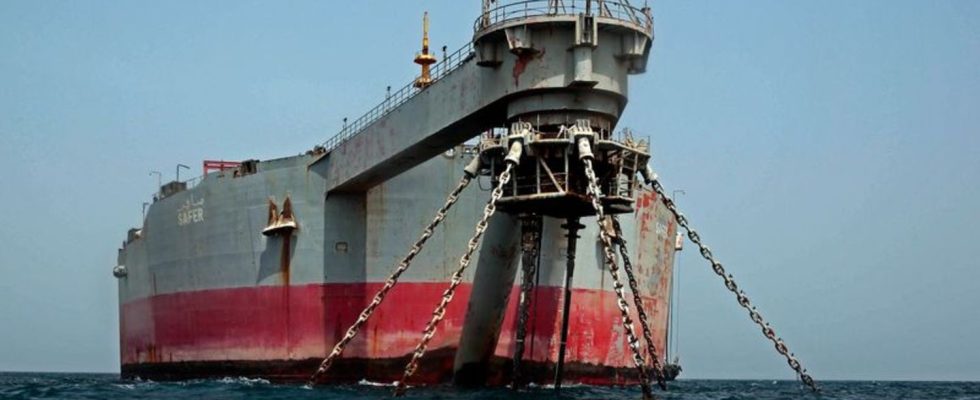Environment
Difficult oil salvage off Yemen: disaster averted
View of the ailing oil tanker “FSO Safer” in the Red Sea off the coast of Yemen. photo
© Stringer/dpa
For years, an oil tanker with an explosive cargo has been rotting away in the Red Sea. A devastating environmental catastrophe threatened if the oil leaked out. Now you can breathe easy.
The 47-year-old ship is off the coast of civil war-torn Yemen. It hasn’t been serviced in years. It threatened to break apart or explode. “We have defused a ticking time bomb,” said UNDP chief Achim Steiner of the German Press Agency.
Baerbock: “The rescue operation has shown what is possible”
US Secretary of State Antony Blinken and US President Joe Biden’s National Security Advisor, Jake Sullivan, welcomed the successful operation. This prevented an oil spill “that would have caused major ecological, economic and humanitarian damage,” Sullivan said.
A spokesman for the United Nations in New York also said on behalf of UN Secretary-General António Guterres: “This averted a potentially monumental catastrophe for the environment and people.” Foreign Minister Annalena Baerbock said: “The rescue operation off Yemen’s coast, led by the United Nations, has shown what is possible when the international community tackles it together.”
Despite the stage victory, the UNDP urgently needs money for a clean scrapping of the tanker. Steiner sharply criticizes the hitherto little generous oil and gas industry. “The fact that oil and gas companies, which have had a record year with profits in the billions, are unable to participate is embarrassing and difficult to understand,” Steiner told dpa. He has now written to the bosses of several companies and asked for support. The UNDP has already had to make advances and have had to take money from pots that are no longer available for humanitarian projects.
Germany one of the biggest donors
The entire operation, including the scrapping of the 350-meter-long “Safer”, costs around 143 million dollars (around 130 million euros). The UNDP is short of around $20 million. With a good twelve million dollars, Germany is one of the largest donors to the campaign.
“With the completion of the transfer, one of the greatest threatening ecological catastrophes has been avoided,” said Steiner. An accident on the “Safer” would have had consequences for decades. The ship would have become a symbol of devastating environmental damage like the “Exxon Valdez” once did. The tanker ran aground off Alaska in 1989. The resulting oil spill is still considered the biggest environmental disaster in international shipping. “With what we’ve accomplished in the past few weeks, thank God no one will remember the name ‘Safer’ in a few months.”
The oil is now on the tanker “Yemen” (after the English spelling of the civil war country). The UNDP bought it specifically for the campaign. The tanks on the “Safer” now have to be cleaned with seawater. The water is also stored on the “Yemen”. According to Steiner, contracts on where the “Safer” will then be scrapped are about to be concluded.
Oil proceeds are to be used for humanitarian aid
The “Yemen” remains in Yemeni waters. Both sides of the conflict have agreed in principle that the oil will be sold and the proceeds will benefit the people, according to the UNDP. The situation in the country is considered one of the greatest humanitarian catastrophes in the world. The civil war began in 2014 when Houthi rebels overran large parts of the country. It remains unsolved to this day. More than three quarters of the more than 30 million inhabitants are dependent on humanitarian aid.
From the UN’s point of view, it would be conceivable for the proceeds from the sale of the oil to flow into a special fund under UN supervision. The fund could distribute the money according to principles agreed beforehand by all sides. Negotiations on the terms of the oil sale are still pending. The UNDP will remain in charge of the Safer until the end of the year and will train specialists from the Yemeni state oil company to maintain the tanker Yemen.

